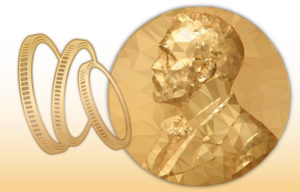
Gerard Debreu
1921-2004
Gerard Debreu’s contributions are in general equilibrium theory—highly abstract theory about whether and how each market reaches equilibrium. In a famous paper coauthored with Kenneth Arrow and published in 1954, Debreu proved that under fairly unrestrictive assumptions, prices exist that bring markets into equilibrium. In his 1959 book, The Theory of Value, Debreu introduced more general equilibrium theory, using complex analytic tools from mathematics—set theory and topology—to prove his theorems. In 1983 Debreu was awarded the Nobel Prize “for having incorporated new analytical methods into economic theory and for his rigorous reformulation of the theory of general equilibrium.”
A native of France, Debreu spent most of his professional life at the University of California at Berkeley. He started as a professor of economics in 1962 and was appointed professor of mathematics in 1975. In 1976 Debreu was made a chevalier of the French Legion of Honor.
About the Author
David R. Henderson is the editor of The Concise Encyclopedia of Economics. He is also an emeritus professor of economics with the Naval Postgraduate School and a research fellow with the Hoover Institution at Stanford University. He earned his Ph.D. in economics at UCLA.
Selected Works
Related Entries

